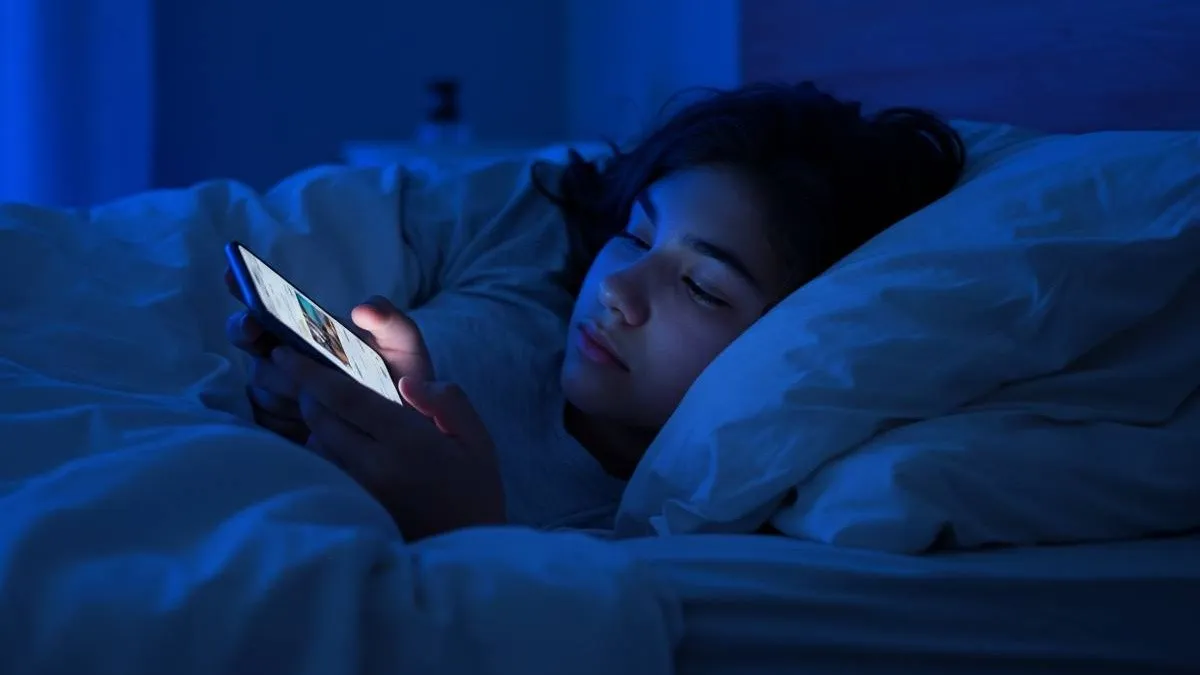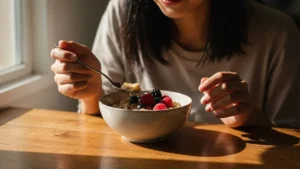The idea that blue light from cell phones and laptops automatically makes you sleepless may be a myth. Modern science reveals a more complex picture, where melatonin suppression is only one piece of the puzzle.
The belief that blue light emitted by electronic devices such as cell phones, computers, and televisions is the main cause of insomnia may be a modern myth, according to new research and a review of existing studies.
Although it has been repeatedly stated that exposure to this light suppresses the production of melatonin, the hormone that induces sleep, a growing number of experts question whether this effect is enough to disrupt rest.
Science now indicates that the relationship between blue light and sleep is much more complex, and even suggests that the content consumed on screens has a greater influence.
Studies question the impact of blue light on sleep
Lauren Hartstein, an assistant professor of psychiatry at the University of Arizona, and other researchers have thoroughly reviewed the available scientific evidence.
They point out that many of the initial studies on blue light and sleep were conducted under laboratory conditions with small sample sizes, limiting their real-life applicability. Although exposure to blue light can reduce melatonin levels, there is no conclusive evidence that screen use is the determining factor for this decrease.
Mariana Figueiro, a scientist at Mount Sinai, points out that melatonin suppression can depend on several factors, such as the proximity of the device to the eyes, the brightness of the screen, and the exposure time.
For example, a 2013 study she led found that using an iPad at maximum brightness for two hours caused a slight drop in melatonin levels, while one hour of use had no effect. A later 2014 study showed that watching TV from nearly 10 feet away didn’t affect melatonin.
Additionally, sensitivity to blue light varies greatly between individuals. A 2019 study found that some participants required 40 times more light exposure to experience the same melatonin suppression as the most sensitive. Add to this the sunlight factor: some research suggests that the more bright sunlight you receive during the day, the less susceptible you are to a nighttime drop in melatonin.
What you do on the screen matters more than the light
If blue light isn’t the only culprit, what’s keeping us awake? Several experts, such as Daniel Buysse of the University of Pittsburgh, suggest that the type of activity we perform on our devices plays a crucial role.
Interactive and addictive activities, such as playing video games, browsing social media, or online gambling, activate the brain’s reward system and keep us alert. These activities are particularly problematic because they are designed to keep us engaged.
Similarly, stressful activities, such as reading disturbing news, can stimulate the mind in a way that makes it impossible to disconnect. “You can turn off your device, but you can’t turn off your brain,” Hartstein notes. A 2024 study of teenagers showed that those who played games or texted before bed tended to sleep less and fall asleep later than those who didn’t.
On the other hand, less interactive activities, such as watching television or reading an e-book, seem to have a smaller effect. The key, according to experts, is the content. Watching a new and exciting series is more likely to disrupt sleep than rewatching a familiar and comforting program.
Screens might even help you sleep.
The relationship with screens can go both ways. For people who suffer from insomnia due to recurring thoughts or anxiety, using a tablet to watch a familiar, relaxing program can be beneficial. The key is to make the content interesting enough to distract from negative thoughts, but not so captivating that it keeps us awake.
Aric Prather, a psychologist at the University of California, San Francisco, suggests that the “sweet spot” is something positive and familiar, like a comedy. For one of his patients, the series It’s Always Sunny in Philadelphia was the solution to combat ruminative thoughts before bed.
Finally, if device use doesn’t affect your sleep, there’s no reason to worry. Hartstein concludes that if you fall asleep quickly, rest well throughout the night, and feel refreshed the next day, there’s no need to change your habits. The most important thing is to listen to your own body and your sleep routines.























+ There are no comments
Add yours